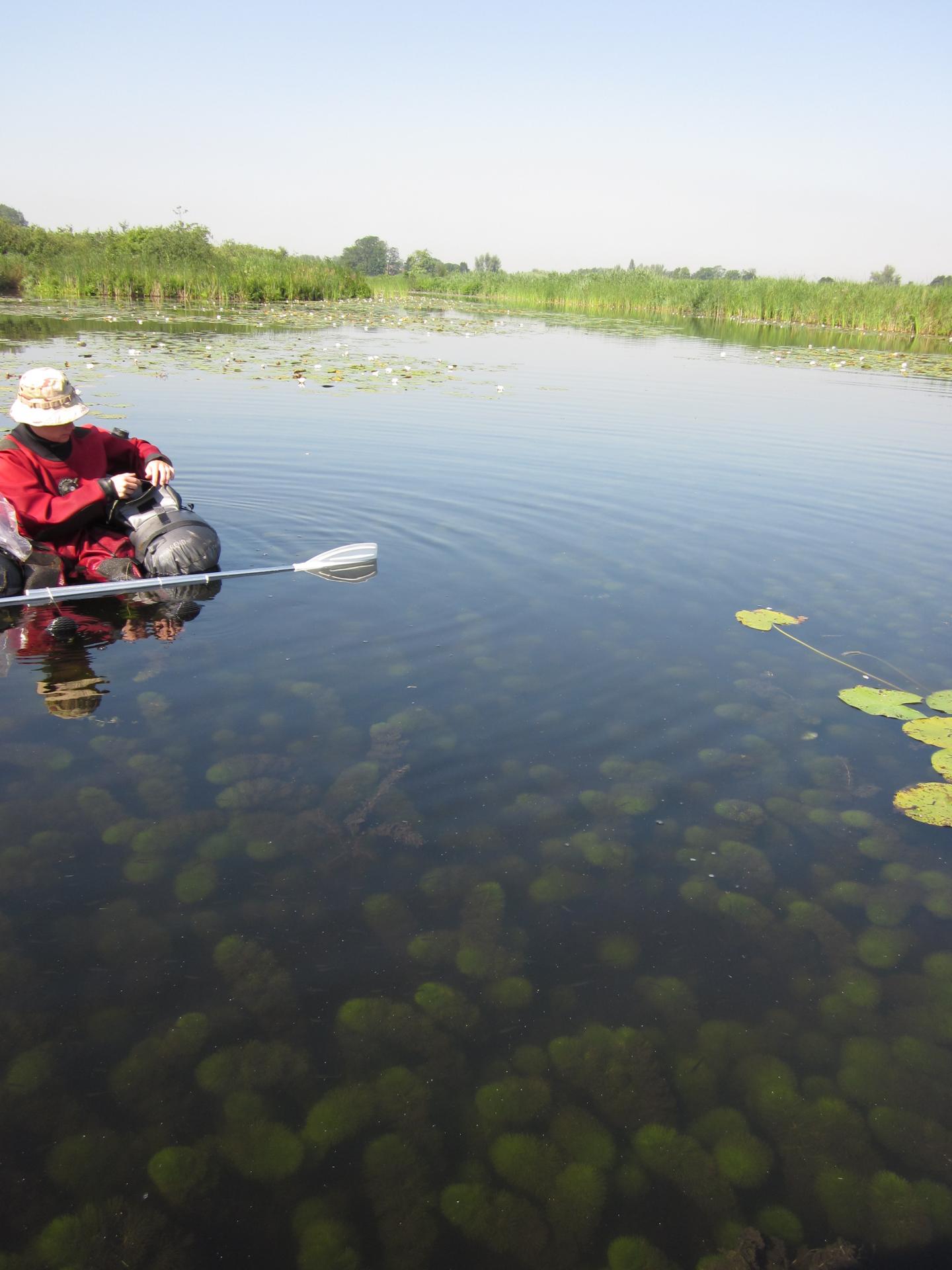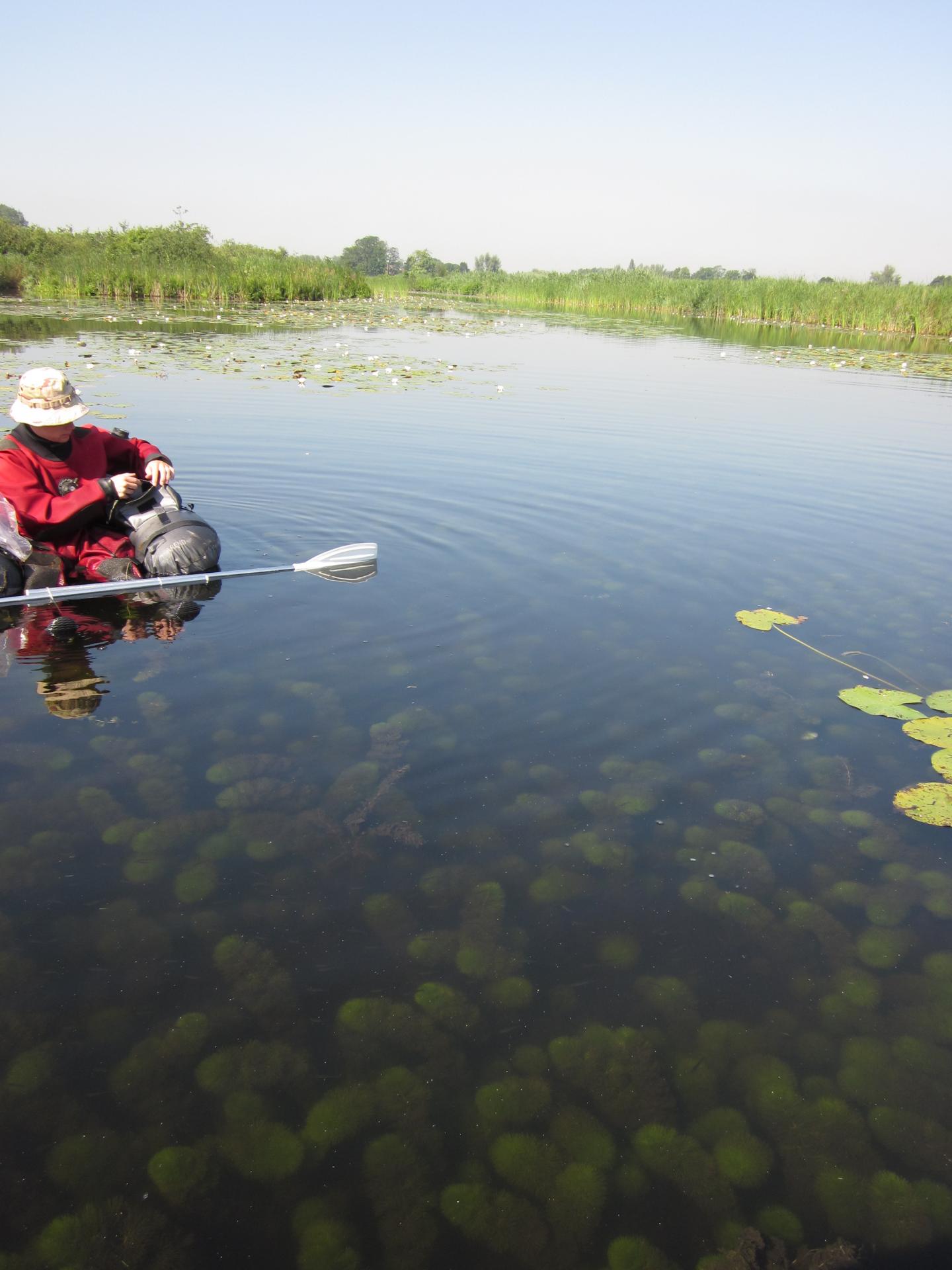
Credit: NIOO-KNAW
When it comes to their role in aquatic ecosystems, exotic water plants are generally no different than indigenous species. In fact, they can be an asset. That doesn't mean all exotic species should be given free rein. But they can be managed more effectively if you focus on their properties and not their place of origin. Ecologist Bart Grutters (NIOO-KNAW) will defend his PhD thesis research on Wednesday 5 April.
Exotic species – plants and animals from other parts of the world – tend to get a bad press. But a solid ecological, scientific underpinning is often lacking. With his thesis research, Bart Grutters redresses the balance: "If you look at the role of exotic water plants in an ecosystem, you won't find any significant differences compared to indigenous species."
So how do you make a fair comparison? Grutters and his fellow researchers at NIOO studied seven essential functions of water plants in experiments with indigenous and non-indigenous species. They looked among other things at the impact of the plants on the habitat and food supply of fish and small aquatic animals, on cyanobacterial growth and on greenhouse gas emissions. What they found was that all things considered, the two groups are not fundamentally different.
Properties vs origins
"Some exotic species have a negative effect, others a very positive one. The same can be said of indigenous species", notes Grutters. The best way to predict what effect they'll have is by looking at properties such as the plants' chemical defences against herbivores, or the rigidity of their stems (which determines their suitability for providing cover). "It's those properties we should be judging, not their place of origin."
The rapid proliferation of exotic species is often linked to strong, human-caused disruption of the environment. "If you keep cleaning ditches, of course you're going to create an empty, eutrophic environment in which rapid growers will seize their chance", says Grutters' supervisor, fellow NIOO-ecologist Liesbeth Bakker. "The proliferation of exotics is much more symptom than cause of disruption."
Indigenous species, too, will proliferate under such circumstances – just think of nettles. Yet even 'weeds' can have their use. "Waterweed, for instance", says Bakker, "is an invasive species in the Netherlands, but it's also a valuable addition to the food supply of water birds."
Water management advice
"If you have the choice, invest your water management funds in removing exotic species before they can proliferate: prevention is better than cure. But once they've become established, it's best to control those species with problematic properties", the researchers argue.
Floating aquatic plants, for instance, are more likely to have a negative impact on their surroundings than submerged aquatic plants, because they risk closing off the water surface to oxygen and light. They can also have a detrimental effect on the water flow and on recreation. "It's still never wise to drop exotic aquarium or pond plants in a ditch."
The researchers also recommend more openness to the positive contribution of some exotic species to water management: they can help to ensure clean water, or provide shelter to young fish. Grutters: "Removing exotic water plants may even backfire. Over the coming years, non-indigenous species can help restore rather than reduce the ecological value of damaged ecosystems."
No 'green soup'
Submerged exotic water plants such as waterweed can even survive in some extremely nutrient-rich environments where indigenous species fail. They then take over the role of the indigenous plants, preventing the water from turning into green soup without any plant or animal life. By reducing the surplus of nutrients in the water and the sediment, they can pave the way for returning indigenous species.
###
Bart Grutters carried out his research at NIOO, with funding from the NWO research programme 'Biodiversity Works'. He will receive his PhD from Utrecht University.
With more than 300 staff members and students, NIOO is one of the largest research institutes of the Royal Netherlands Academy of Arts and Sciences (KNAW). The institute specialises in water and land ecology. As of 2011, the institute is located in an innovative and sustainable research building in Wageningen, the Netherlands. NIOO has an impressive research history that stretches back 60 years and spans the entire country, and beyond.
Media Contact
Froukje Rienks
[email protected]
31-610-487-481
@niooknaw
http://www.nioo.knaw.nl
############
Story Source: Materials provided by Scienmag





